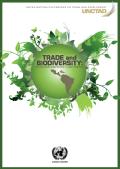Improving energy-efficiency is essential to any strategy to reduce global emissions of greenhouse gases (GHGs). New generations of household appliances are becoming ever more energy-efficient due to continuing technological advances, often spurred by government policies. These products are manufactured, sold and used on a global scale not imagined a decade ago. Yet achieving the full market potential of these best-available technologies has proven elusive, due to a variety of factors, some of which are trade-related. This paper considers these factors and looks at ways of addressing them. It examines four products in the residential sector that have considerable potential for significantly reducing GHG emissions: refrigerators, televisions, lighting, and air conditioners. These technologies are also widely traded globally. To develop a better understanding of how improvements in energy efficiency could affect CO2 emission reductions, the paper draws on work undertaken by Japan’s Research Institute of Innovative Technology for the Earth (RITE), using their DNE21+ model.
This paper focuses primarily on the opportunities that global trade can bring in the transition to the green economy and how the Rio+20 Conference can catalyse the transition by generating new investment, income sources and jobs among countries of varied levels of development. It elaborates by explaining that trade plays an essential role in the diffusion of green goods, services, technologies and production among countries and that this enhances economic growth and contributes to environmental and social developmental objectives.
The report stresses that growth resulting from international trade of green goods and services should be inclusive, building the human and productive capacities of developing countries and stimulating economic diversification, employment for the poor and increased access to basic services such as energy, water, housing, education, communications and transport.
The paper concludes by presenting key issues and considerations that need to be taken into account in the Rio+20 Conference deliberations and how UNCTAD can support countries in their transition to a green economy.

